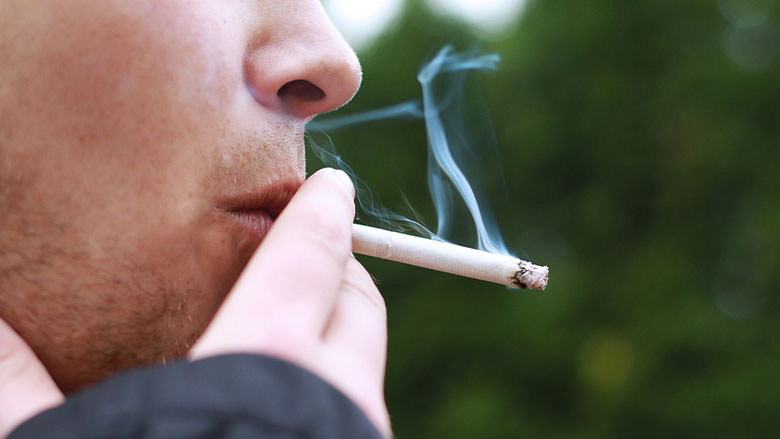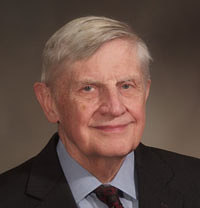The public health ‘nanny state’
By David Tuerck | June 7, 2016, 7:10 EDT
 (Courtesy of pixabay)
(Courtesy of pixabay) Probably the most famous example of nanny state intervention in consumer choices was Mayor Michael Bloomberg’s attempt to ban the sale of oversize sugary drinks. After a court overturned the ban, one state legislator introduced a bill that would impose a similar ban on drinks sold to consumers under 18, on the theory that a narrowly tailored bill of this kind would pass constitutional muster. This would probably be the first time anyone had to present an ID to buy a Big Gulp.
The nanny-state fad currently sweeping Massachusetts has to do with the smoking age. As of April 19, 101 Massachusetts cities and towns had laws banning the sale of cigarettes to persons under age 21. Now Massachusetts is poised to become the second state (after Hawaii and right before California) to impose the ban state wide on cigarettes. The attorney general has already issued a rule banning sales of e-cigarettes to minors. Under a bill approved by the state senate, Massachusetts would also forbid pharmacies and health-care institutions from selling tobacco products and extend the ban on indoor smoking to e-cigarettes.
The basis for these actions is the claim that smoking is a public health issue: Smoking causes premature deaths and inflicts health care costs on society. The decision to raise the legal smoking age is based, in addition, on the argument that, if young people can be deterred from smoking they won’t take it up as adults. One report estimates that smoking will eventually kill 103,000 people in Massachusetts who are young now and who smoke. The same report puts the annual cost to the state of smoking-related diseases at $4.8 billion.
Despite the professed good intentions behind such statistics, the drive to ban smoking by young people, like the drive to curb the consumption of sugary drinks by young and old, takes us down a path toward totalitarian control of our daily lives. After all, if the overriding principle at work here is that a legislative majority can curb any form of individual consumption out of concern for the “public health,” then are hardly any limits to that power.
Imagine a 20-year-old who returns from military service in Afghanistan just to be told by a store clerk that the good people of Medway, Massachusetts (which has implemented the 21-year-old rule) have decided that he is not mature enough to make a choice about smoking. The fact that this likely turn of events did not deter the town officials from imposing the rule testifies to the grip that the nanny state mentality has on public officials in general.
Even if we grant the argument as it applies to smoking tobacco, the argument for extending the ban to e-cigarettes is far weaker, inasmuch as those cigarettes do not generate the toxic substances generated by tobacco and they arguable help people wean themselves off of tobacco. There seems to be a sense among regulators that they need to know more about e-cigarettes before allowing greater access to them. Which is how it works in the nanny state: When in doubt, just ban the product, even if it clearly represents a much healthier alternative to a product already in use.
The idea of banning the sale of cigarettes by pharmacies is patently absurd insofar as it should be the prerogative of any company to decide what legal products, including cigarettes, it wants to sell. If there is to be an airtight distinction between what “health care institutions” and convenience stores may and may not sell, perhaps we should ban sales of potato chips and candy by the former and aspirin by the latter. Then consumers will know which outlets to patronage for healthy products and which for unhealthy products.
What we have with the 21-or-older rule as it is being applied to smoking is a case study in how the modern nanny state works: Find some type of human consumption that bears some kind of public health risk and that is enjoyed by a weak minority of the population and regulate it up to the point where further regulation might incur unwanted resistance. It is a fine line to tread. A 2011 study shows that the smoking rate for Massachusetts teens is down to 14 percent, which means the hypothetical veteran returning from battle wouldn’t have many followers if he complained to town officials. On the other hand, Michelle Obama’s attempt to regulate school lunches is incurring some political pushback over resistance by the kids to what she wants them to eat. So a future administration might just let the kids eat what they like.
As for smoking, the regulators would no doubt prefer a simple ban on cigarettes but are deterred by the fact that enough adults enjoy smoking that the result would be an explosion of bootleg sales and the drying up of an important revenue source. So better to find other ways to make smoking marginally less convenient. Give my neighbors legal recourse if I decide to smoke a cigar in my backyard.
Everyone knows, anyway, that it is impossible to predict whether a 20-year-old who smokes a cigarette now will come down with cancer at age 50. Adults quit all the time, and maybe e-cigarettes will become sufficiently safe and enjoyable as to put the whole tobacco industry out of business, that is if the nanny state crowd just lets that happen.
Anyway, if the concern is to protect public health, I have a suggestion. By almost every measure, teen drivers are a menace to themselves and everyone else on the road. According to the Centers for Disease Control and Prevention, “Drivers ages 16 to 19 are nearly three times more likely than drivers aged 20 and older to be in a fatal crash.”
So, I say, raise the driving age to 20 and save thousands of lives every year (and relieve my worries over my grandchildren, who are approaching driving age). Why won’t the nanny state regulators push for that change when the benefits are immediate and obvious? The answer is that the political pushback would also be immediate and obvious. Kids who want to drive – and their parents, who want their kids to drive – are a much bigger political force to deal with than kids who smoke. So you have to be practical when it comes to regulating individual behavior. No point in taking an action that is guaranteed to save many lives but that will incur serious political resistance, when it is possible to limit the rights of a small, political powerless group, however vague the benefits.

David G. Tuerck
David G. Tuerck is executive director of the Beacon Hill Institute and professor of economics at Suffolk University. Read his past columns here.
NBPHealth











